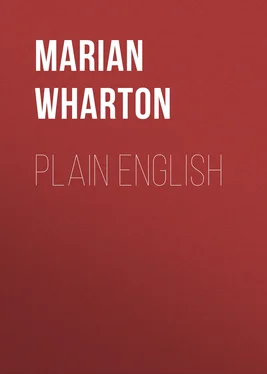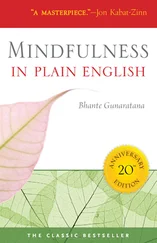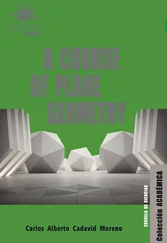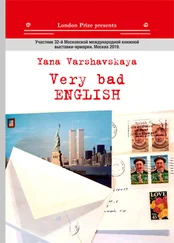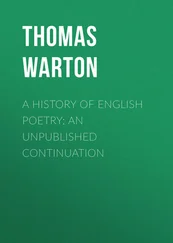Marian Wharton - Plain English
Здесь есть возможность читать онлайн «Marian Wharton - Plain English» — ознакомительный отрывок электронной книги совершенно бесплатно, а после прочтения отрывка купить полную версию. В некоторых случаях можно слушать аудио, скачать через торрент в формате fb2 и присутствует краткое содержание. Жанр: foreign_edu, foreign_language, на английском языке. Описание произведения, (предисловие) а так же отзывы посетителей доступны на портале библиотеки ЛибКат.
- Название:Plain English
- Автор:
- Жанр:
- Год:неизвестен
- ISBN:нет данных
- Рейтинг книги:5 / 5. Голосов: 1
-
Избранное:Добавить в избранное
- Отзывы:
-
Ваша оценка:
- 100
- 1
- 2
- 3
- 4
- 5
Plain English: краткое содержание, описание и аннотация
Предлагаем к чтению аннотацию, описание, краткое содержание или предисловие (зависит от того, что написал сам автор книги «Plain English»). Если вы не нашли необходимую информацию о книге — напишите в комментариях, мы постараемся отыскать её.
Plain English — читать онлайн ознакомительный отрывок
Ниже представлен текст книги, разбитый по страницам. Система сохранения места последней прочитанной страницы, позволяет с удобством читать онлайн бесплатно книгу «Plain English», без необходимости каждый раз заново искать на чём Вы остановились. Поставьте закладку, и сможете в любой момент перейти на страницу, на которой закончили чтение.
Интервал:
Закладка:
Men and women struggle for their rights.
Can you find a word in this sentence which is a connective word besides the preposition for ? Did you notice that little word and ? The noun men and the noun women are both subjects of the verb struggle , and they are joined by this little connective word and . If we did not have this word we would have to use two sentences to express our thought, thus:
Men struggle for their rights.
Women struggle for their rights.
But with the use of this connective word and we can combine these two sentences and express it all in one sentence:
Men and women struggle for their rights.
This word is used in a different manner from the preposition. The preposition connects two words and makes one modify the other. When we say, Get the book on the table , the phrase on the table designates the book just as much as if we had said, Get the green book . So the use of the preposition enables us to show the relation between two words and to make one word describe or modify the other.
51.This little word and in the sentence, Men and women struggle for their rights , is a connective word also, but it connects two words that are used in the same way, so it is a different sort of connective word from the preposition. Words used in this way are called conjunctions . Conjunction is a word which is taken from the Latin, being made up of the Latin word con , which means together , and the Latin verb juncto , which means to join . So conjunction means literally to join together .
52. A conjunction is a word that connects sentences or parts of sentences.
Notice the following sentence:
The class struggle is waged on the political field and on the industrial field.
Here we have the conjunction and connecting the two phrases on the political field and on the industrial field . Without the use of this connective word, we would have to use two sentences to express these two thoughts:
The class struggle is waged on the political field.
The class struggle is waged on the industrial field.
53.So a conjunction may be used to connect phrases as well as words.
Now notice the following sentences:
He will speak. I will listen.
He will speak, and I will listen.
He will speak, but I will listen.
He will speak, if I will listen.
He will speak, therefore I will listen.
He will speak, because I will listen.
He will speak, until I will listen.
54.These sentences are joined by different conjunctions, and the conjunction used alters the meaning of the sentence.
The conjunction is a very useful part of speech. Without it we would have many disconnected sentences requiring tiresome repetition of the same words. Like prepositions, there are not many conjunctions in English and they are readily recognized.
55.We will study about these conjunctions at length in later lessons. If you consult the following list of those most commonly used, you can easily pick out the conjunctions in your reading:
and
as
as if
after
although
as soon as
because
besides
before
but
either
for
hence
in order that
lest
neither
nor
or
since
still
so
then
though
that
than
therefore
till
until
unless
while
whether
yet
The seven classes of words which we have studied make up all of our sentences. The hundreds of words which we use in forming our sentences and expressing our thoughts belong to these seven classes. They are either nouns, pronouns, verbs, adverbs, adjectives, prepositions or conjunctions.
Exercise 5
Underscore the conjunctions in the following sentences. Notice whether they connect words or phrases or sentences.
1. We cannot win unless we are organized.
2. Books and music are true friends.
3. Men, women and children work under conditions neither proper nor just.
4. We must educate and organize.
5. The workers on the farms and in the factories must be united.
6. Winter has come and the birds are going South.
7. We have been ignorant, therefore we have been exploited.
8. We must learn before we can teach.
9. We do not understand the situation, because we do not know the facts.
10. Do you know whether these statements are true or false?
Somebody said that it couldn't be done,
But he, with a chuckle, replied
That "maybe it couldn't," but he would be one
Who wouldn't say so till he tried.
So he buckled right in, with a trace of a grin
On his face. If he worried he hid it.
He started to sing as he tackled the thing
That couldn't be done—and he did it.
Somebody scoffed, "Oh, you'll never do that;
At least no one ever has done it."
But he took off his coat and he took off his hat,
And the first thing we knew he'd begun it;
With the lift of his chin, and a bit of a grin,
Without any doubting or quiddit,
He started to sing as he tackled the thing
That couldn't be done—and he did it.
There are thousands to tell you it can not be done;
There are thousands to prophesy failure;
There are thousands to point out to you, one by one,
The dangers that wait to assail you.
But buckle right in, with a lift of your chin,
Then take off your coat and go to it;
Just start in to sing as you tackle the thing
That "can not be done,"—and you'll do it.
INTERJECTIONS
56.There is another class of words which we use with sentences, but which are really not parts of the sentences. They are emotional expressions which seem to belong more to the natural language than to the invented language. For example:
Oh! You hurt me!
Aha! Now I have you.
Oh , used in this way, is very apt to sound like a groan, and aha like a shout of triumph. These words do not really belong in the construction of the sentence. The sentence would be complete without them, but they are thrown in to express the emotion which accompanies the thought. We call expressions such as these interjections . Interjection is from the Latin and means literally thrown into the midst of . It comes from the Latin word inter , which means between , and the Latin verb jecto , to throw , so it literally means to throw between .
Some of these words imitate sounds, as for example:
Bang! There goes another shot.
Ding-dong! There goes the first bell.
We do not use interjections very frequently in writing on scientific subjects that express deep thought, but you will find them often used in poetry, fiction, oratory or any emotional writing. Therefore we have our definition of an interjection:
57. An interjection is an exclamatory word or phrase used to express feeling or to imitate some sound.
58.Following is a list of commonly used interjections. Use them in sentences of your own.
oh
hello
bravo
ahoy
aha
hurrah
bow wow
ssh
alas
hist
whirr
pshaw
fie
whoa
ding-dong
rub-a-dub
Exercise 6
Интервал:
Закладка:
Похожие книги на «Plain English»
Представляем Вашему вниманию похожие книги на «Plain English» списком для выбора. Мы отобрали схожую по названию и смыслу литературу в надежде предоставить читателям больше вариантов отыскать новые, интересные, ещё непрочитанные произведения.
Обсуждение, отзывы о книге «Plain English» и просто собственные мнения читателей. Оставьте ваши комментарии, напишите, что Вы думаете о произведении, его смысле или главных героях. Укажите что конкретно понравилось, а что нет, и почему Вы так считаете.
